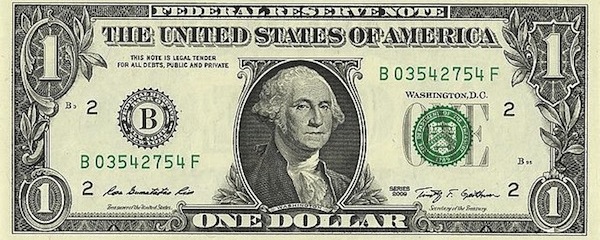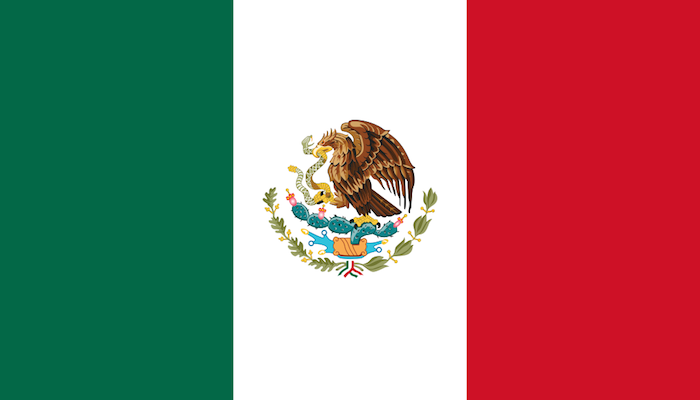Why give your money to a bloated, inefficient government when you could let a bloated multinational corporation extract your money as efficiently as possible?
Tag Archives: capitalism
Fair wages are just another operational cost to meet
There are op-ed columnists weeping about all the jobs a $15 wage floor would supposedly eliminate, as if companies couldn’t just cut executive pay and shareholder payouts. Some still insist that, to avoid spurring unemployment, it would be better to pay everyone less than they need to pay bills.
I hate to break it to them, but the first goal of paid work is to get workers enough money to survive, not to give everyone something to do. But at any rate, there’s just so much evidence that reasonable minimum wages don’t cause mass unemployment (despite what those folks seem to think).
Really, it’s all a matter of priorities. Wages are just part of the field conditions in which companies compete under a properly regulated capitalist market, along with taxes and supply costs and anything else you can imagine a company needing to pay for. We’ve decided not to properly regulate the labor market, so companies use money for other stuff (or profits), and not for wages.
As FDR argued, if your business literally can’t operate without underpaying workers, it doesn’t deserve to operate. If higher wages for low-level workers is the breaking point for your company and no internal changes can save it, your company is a disaster. A properly regulated market would adhere to the principle of corporate survival of the fittest, but “fittest” would include ability to pay fair wages without bankruptcy. Small businesses wouldn’t go bust automatically either, because all workers would be getting paid more and thus have more to spend locally.

Mexican state of Baja Calif. to test government wage support
While far from an ideal solution, Mexico’s federal government is planning to experiment in the state of Baja California with an unprecedented program to subsidize the difference between private wages and livable incomes for some farm workers.

If signed on June 4, this plan negotiated by the state and federal government — in an effort to prevent current labor disputes, strikes, and blockades from boiling over into wider disorder or violence — would be in lieu of setting a much higher minimum wage and attempting to compel the private industry to pay that full amount (probably to keep the companies from just moving the jobs to another state with a lower prevailing wage).
The downside of the plan (I’m guessing) is that it’s likely some companies will try to lower their wages (illegally or otherwise) to pay even less at prevailing effective wage levels, but the government says it will negotiate with the industry to come to some sort of solution so that the existence of subsidies isn’t abused. (They’ll also raise the minimum wage somewhat — just not all the way to the 200 pesos/day target. The remaining difference will then be subsidized.)
Another criticism will likely be that this is essentially a taxpayer-funded gift to the large Mexican agribusiness corporations whose representatives and allies dominate the state’s government. But more on that later.
In general, of course, this new plan is fairly strange to our eyes, because the government here (also) typically doesn’t have a direct role in subsidizing general wages, since paying workers is a role we assign entirely to the actual employers, and the government just sets the legal floor. In theory. As The Atlantic points out, that’s not actually really accurate in practice in the United States; we just obscure it better than doing direct wage subsidies:
Having the government step in to fill the gap between reality’s wages and livable wages might seem foreign to Americans, but the U.S. government in a sense already does this—just less directly. A recent study from UC Berkeley’s Labor Center found that nearly three-quarters of people participating in government programs such as Medicaid and food stamps are in families headed by workers. The authors, calling this a “hidden [cost] of low-wage work in America,” estimated that through these programs, taxpayers provide these families with about $150 billion in public support. Additionally, programs such as the Earned Income Tax Credit essentially subsidize the wages of workers whose income is below a certain level.
Shouldn’t companies be making up this difference instead of taxpayers? That’s how some state legislatures feel. Starting next year, California will publicly name any company that has more than 100 employees on Medicaid. And in Connecticut, state legislators are considering a bill that would require large employers to pay a penalty for each worker on their rolls earning less than $15 an hour.
And of course those various hidden costs to the government don’t even get into the actual blatant government subsidies in the U.S. for various agricultural production like dairy and corn to maintain certain production and price levels. Or the various massive tax incentives doled out to attract companies to specific states or communities (ideally only if they create a specific number of jobs, which is then essentially a wage support program in disguise).
But the Mexico experiment gets to the bigger questions: Whose job is it to ensure a livable wage in a globalized economy? And how is that goal best achieved, regardless of “moral” responsibility?
We may not instinctively like the idea of the government writing a check to make up the difference when private industry tries to tighten the screws on its workers in a loose labor market that favors employers, but what we like and how to realistically get the necessary goal accomplished may be two increasingly different answers in the 21st century.
Read more
Viet Nam: All that might have been
Idle speculations on lost opportunities in US-Vietnam relations.

I suspect, from all that I’ve read over the years (particularly books like “The Last Valley”), that Vietnam is and likely always was probably the least communist of all the “communist countries,” past and present. (Today it certainly isn’t. Even China doesn’t hold a candle to the mass capitalism of modern Vietnam.)
Communism for Vietnam was, in essence, a successful political and material organizing mechanism for national liberation and an ideology for poverty reduction and social modernization. If you look at the World Bank’s inaugural (1977) report on the unified Vietnam, it’s clear that the Communist Party began dismantling communism — particularly the necessary wartime central planning — and began reorganizing the entire economy of both halves of the country within about a year of the war’s end. There’s also a lot of emphasis in the United States – because of who we backed in the war and our many South Vietnam military and political refugees – about the postwar reprisals, but there’s far less acknowledgment of how fast the postwar Vietnamese government reintegrated and reconstructed southern Vietnam’s economy after the war. And all that transformation was happening in 1975 and 1976, before even the sweeping liberalizations of the late 1980s and early 1990s.
Politically and governmentally, communism was a good model for supervising the war effort in Vietnam’s wars of independence and unification from 1945-1975. It proved itself in battle for decades. Once they won, it went away because its utility was past.
For Vietnam, even economically, communism was never an interim state before utopian socialism. It was an interim state before broad-based, social, and artisanal capitalism – a capitalism that cares about the little people and gives them a real shot in life.
It was the dictatorship for the proletariat to get the West out of Vietnam and itself out of extreme poverty. Read more
Op-Ed: The Problem With Billionaires
My latest op-ed from The Globalist:
In the 1980s, the supply-siders became ascendant in Washington D.C., preaching voodoo economics as “the way, the truth and the life.” Their central claim was that rich people create jobs, while high taxes on the rich leave them with less money to create jobs. Therefore tax cuts for the rich equal job growth.
In reality, this hasn’t borne out. Neither the macroeconomic data nor academic studies have shown much evidence of a direct correlation between rich people having more money and using it to create jobs.
Instead, they mostly just use it to speculate, because it’s essentially extra wealth well above and beyond any other spending or genuine investments they could possibly conceive of.
Read the full op-ed here.



